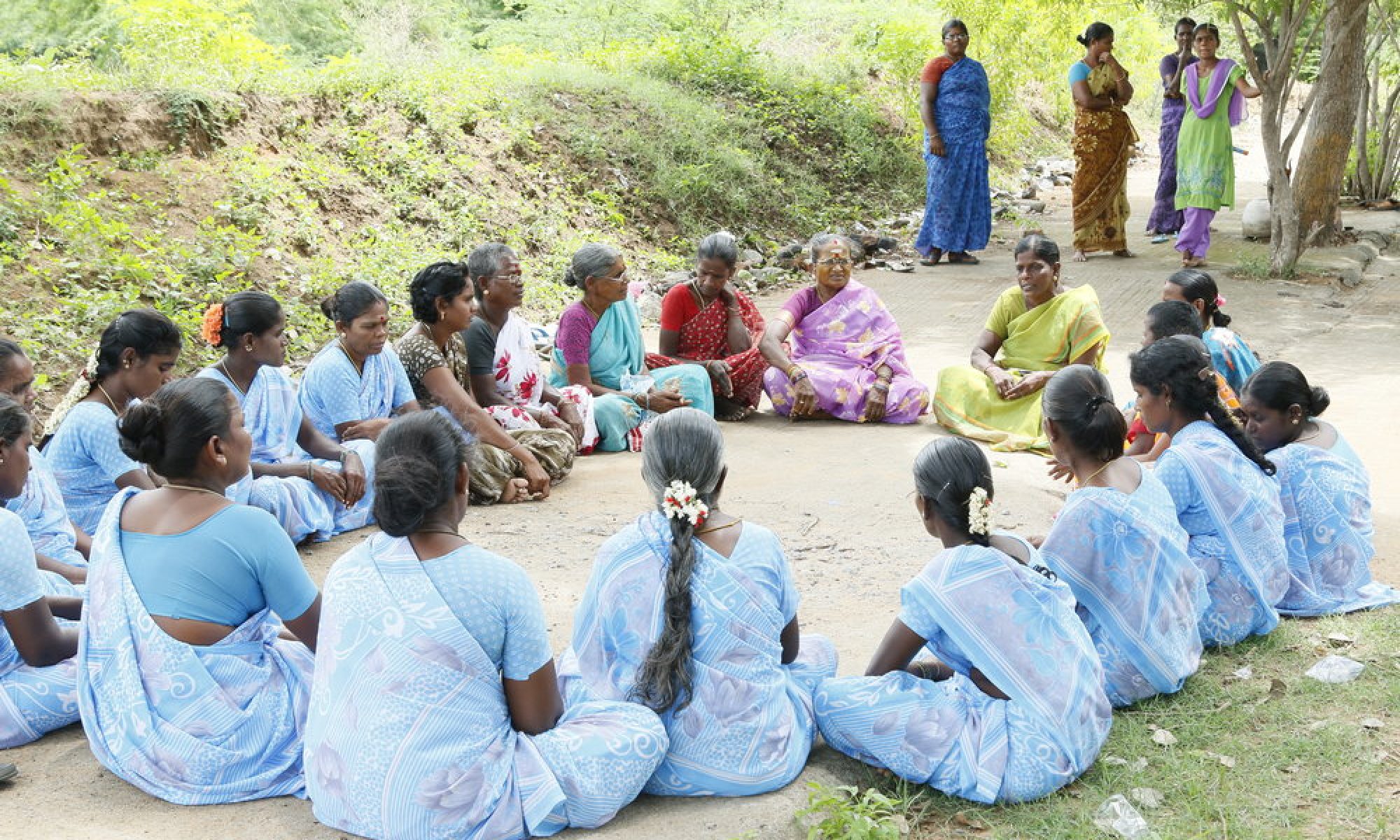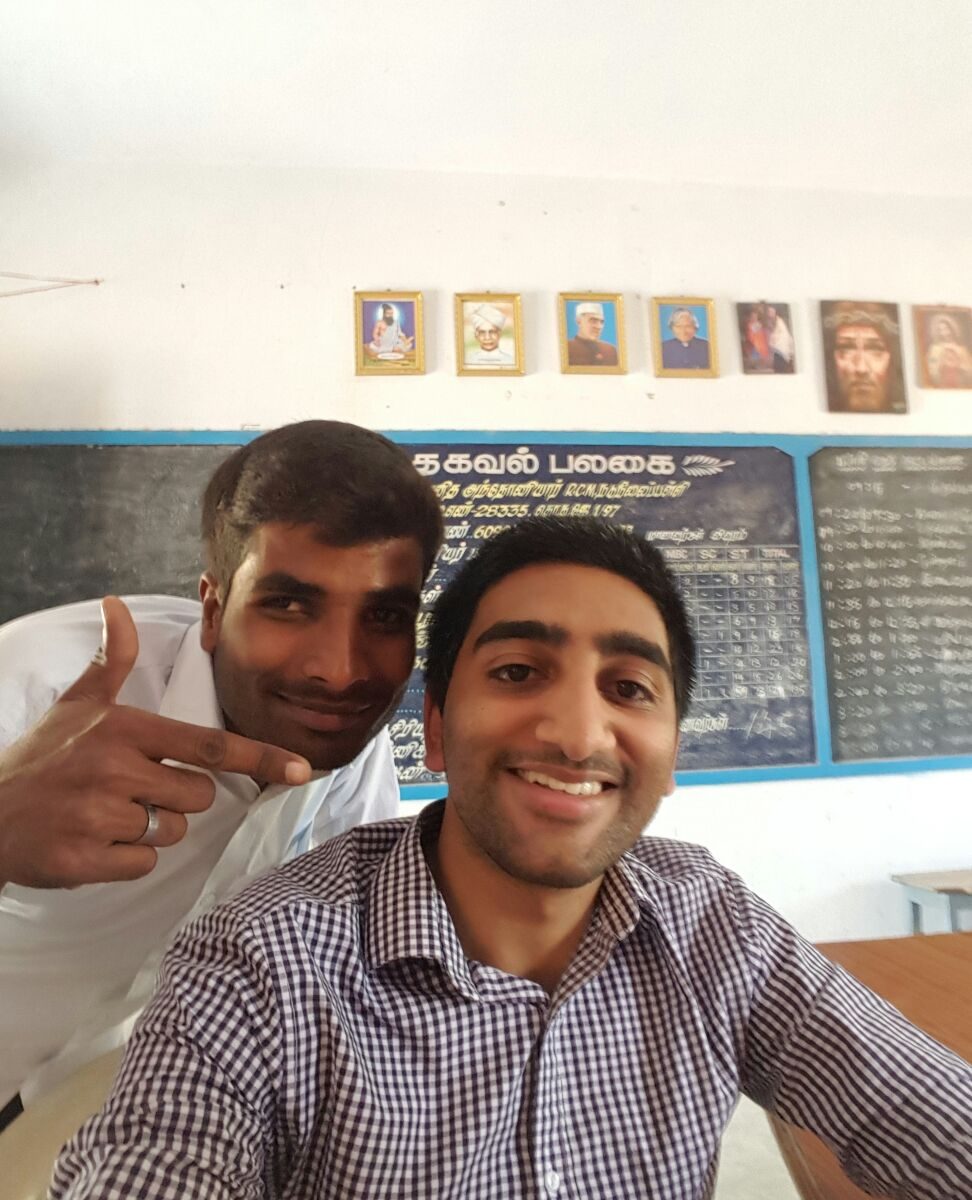It was a typically hot and humid Monday morning wh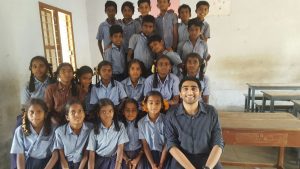 en I set off from the Nandri centre with Joe the Nandri India CEO. Being honest I didn’t really know my destination, only that it would be quite rural and unlike anything I had experienced before. After driving past many towns and some bigger villages we started to head to a more mountainous area until we finally arrived in the village of Udaiyarkuppam. To my surprise and delight there stood a St. Anthony’s church with the parish house beside it where I would be staying for the next week or so. I would be living with the parish priest, Fr Arokiya Raj, who thankfully spoke English well and helped me to adjust.
en I set off from the Nandri centre with Joe the Nandri India CEO. Being honest I didn’t really know my destination, only that it would be quite rural and unlike anything I had experienced before. After driving past many towns and some bigger villages we started to head to a more mountainous area until we finally arrived in the village of Udaiyarkuppam. To my surprise and delight there stood a St. Anthony’s church with the parish house beside it where I would be staying for the next week or so. I would be living with the parish priest, Fr Arokiya Raj, who thankfully spoke English well and helped me to adjust.
The next morning, I was awoken by a what sounded like a large crowd. It was in fact a bell and then the public-address system from the church which calls out the time followed by a prayer or small bible reading at various times during the day. Unfortunately for me it started at 6AM!
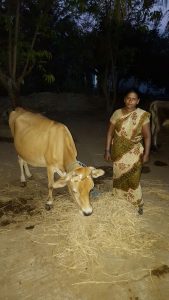 Across the yard from the church was the local school where Joe had suggested that I could help teach English while I was there. I hastily met the young principal, Karthik, and before I knew it I was officially a teacher at Anthony R.C.S Middle School. Suddenly in front of me I had 40 odd expectant kids, looking back curiously at this overawed foreigner. This was a Tamil medium school so the standard of English and exposure to it were rather poor.
Across the yard from the church was the local school where Joe had suggested that I could help teach English while I was there. I hastily met the young principal, Karthik, and before I knew it I was officially a teacher at Anthony R.C.S Middle School. Suddenly in front of me I had 40 odd expectant kids, looking back curiously at this overawed foreigner. This was a Tamil medium school so the standard of English and exposure to it were rather poor.
Nevertheless, me and my students in 7th and 8th standard managed to communicate effectively with a mix of English, broken Tamil and extravagant hand movements! The enthusiasm and eagerness from the kids was fantastic as was the competitiveness which was on display when playing English learning games in class.
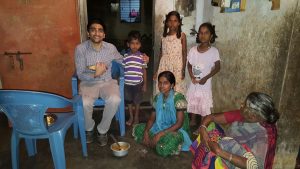 Break times were filled mostly with playing kabaddi, the local sport, where you try to tag the opposing team and run back to your team’s half before they catch and take you down. I had resisted many calls from the students to be a ‘raider’ but eventually gave in. It can get quite rough but thankfully they understood me saying “soft” before they gleefully took me down!
Break times were filled mostly with playing kabaddi, the local sport, where you try to tag the opposing team and run back to your team’s half before they catch and take you down. I had resisted many calls from the students to be a ‘raider’ but eventually gave in. It can get quite rough but thankfully they understood me saying “soft” before they gleefully took me down!
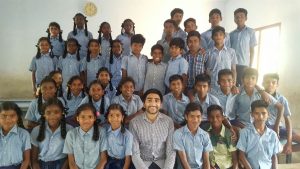 There are around 260 children, mainly Dalits, in the school and each day ends with everyone outside singing the national anthem before heading home which was quite different to Ireland. Admittedly it was daunting at first having never been in a comparable situation but I feel it was a worthwhile and beneficial experience for me and hopefully the students too!
There are around 260 children, mainly Dalits, in the school and each day ends with everyone outside singing the national anthem before heading home which was quite different to Ireland. Admittedly it was daunting at first having never been in a comparable situation but I feel it was a worthwhile and beneficial experience for me and hopefully the students too!
My evenings were equally busy as I went around the nearby villages to conduct surveys as part of my work with Nandri. So, I was visiting mothers and their families who had received loans from Nandri 3 or 4 years ago and helping to determine the impact on their lives. This was another new experience from me as I was exposed to a different side of India than have seen on previous visits. I had help to complete this work in the form of Selvam, a college student in Chennai who is from the local area. His help to translate and converse with the mothers combined with his local knowledge were invaluable. Initially Selvam and I went on foot around Udaiyarkuppum and as I walked up to the homes of some of the mothers I could see the cow they owned- bought with the loan from Nandri. The cow provides them with an asset and essentially becomes an earning member of the family. The milk will usually be sold to a cooperative and so provides a regular monthly income source for the family and also future calves can be sold. Thus, I could see the direct benefit of the Nandri loan for some of the mothers as the extra income was used to help take care of living costs. Indeed some of it was put towards the educational fees for their children. It was also nice a surprise when knocking on a door and seeing it opened by one of my students, some of whom are supported by Nandri.
Of course, as I was travelling around the villages- sometimes with Selvam on his little motorbike- I met others who were struggling more. Some are constrained by chronic medical ailments or a lack of access and affordability to treatment and generally there is a shortage of work. This is in part due to Tamil Nadu being in the midst of its worst drought in 140 years. Naturally the shortage of water affects daily living but also employment opportunities as most people are agricultural daily labourers, thus relying on the land. The struggle is not helped currently by the governments inadequate support despite national protests from Tamil Nadu farmers.
I must also mention the generosity of the villagers as I was travelling around to 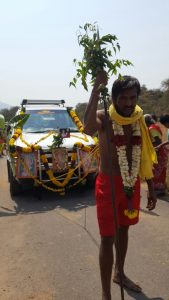 their homes. I’m grateful to their willingness to help us locate fellow group mothers on our list and inform us of any issues. I was also offered numerous snacks, fruits, tea and juice which was very welcome in the scorching heat. Indeed, I had the opportunity to have dinner in some of the mother’s houses and taste some local dishes which was nice- despite being far spicier than I’m used to! I was also able to attend a local Hindu festival one day which included inserting metal hooks into the backs of some worshippers and walking on fire followed by a procession. I had seen some similar things on t.v before but it was interesting to see it up close.
their homes. I’m grateful to their willingness to help us locate fellow group mothers on our list and inform us of any issues. I was also offered numerous snacks, fruits, tea and juice which was very welcome in the scorching heat. Indeed, I had the opportunity to have dinner in some of the mother’s houses and taste some local dishes which was nice- despite being far spicier than I’m used to! I was also able to attend a local Hindu festival one day which included inserting metal hooks into the backs of some worshippers and walking on fire followed by a procession. I had seen some similar things on t.v before but it was interesting to see it up close.
Overall it was an eye-opening experience to live in a truly rural area of India and see some of the people that Nandri support. I’ll certainly miss interacting with the imaginative kids from the school and the ability to talk with locals and learn about their lives while I definitely won’t miss the early morning ‘alarm clock’! I’m told by locals that when the rains come the area is lush green and quite scenic and I look forward to returning sometime and seeing it for myself.
Tony Shaju
